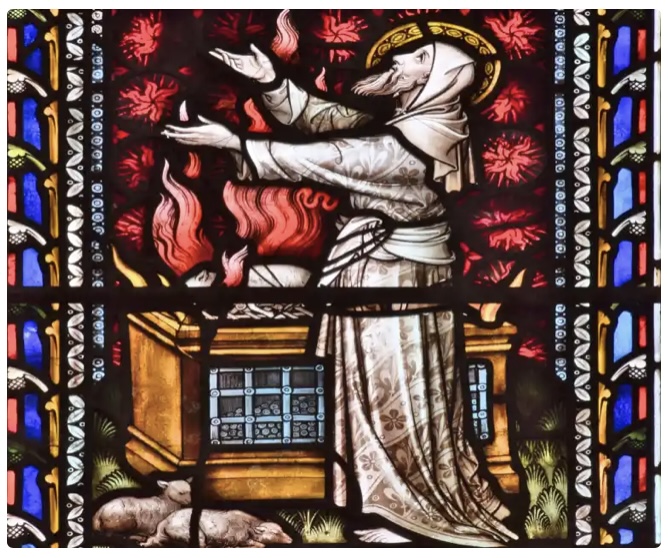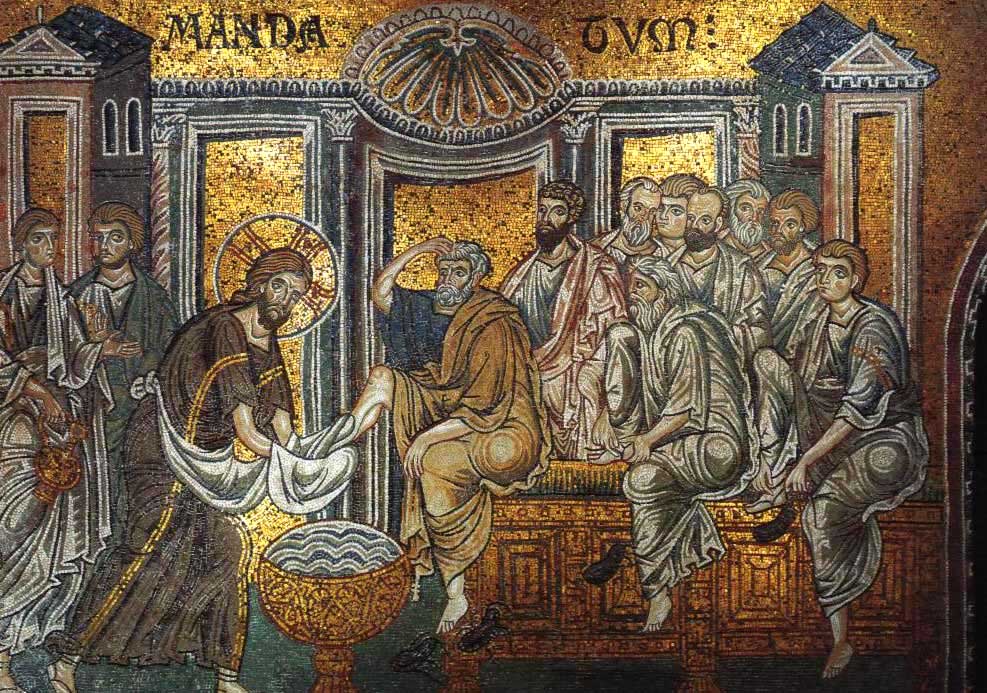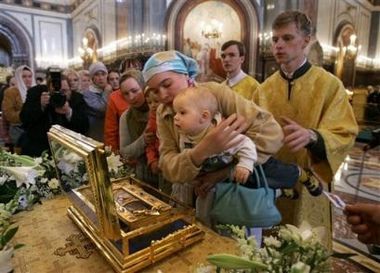
This stained glass window can be found in
Cathedral of Our Lady and St Philip Howard, Arundel
And the LORD said to Moses, “Thus you shall say to the people of Israel: ‘You have seen for yourselves that I have talked with you from heaven. You shall not make gods of silver to be with me, nor shall you make for yourselves gods of gold. An altar of earth you shall make for me and sacrifice on it your burnt offerings and your peace offering, your sheep and your oxen. In every place where I cause my name to be remembered I will come to you and. If you make me an altar of stone, you shall not build it of hewn stones, for if you wield your tool on it you profane it. And you shall not go up by steps to my altar, that your nakedness be not exposed on it. (Exodus 20:22-26)
Moses has just received the Ten Commandments and then God repeats what seems to be what he considers to be the most important commandment: “Do not worship any idols.” This is the summary of the Ten because authentic worship of the living God—not the futile worship of an idol, which stands for what does not exist or is untrue—covers and includes all the other commandments, just as Jesus summarizes the Law: “Love God …. Love your neighbor.”
Idol worship is not devil worship; an idol is not a devil, according to St. Paul. An idol is “no thing,” something that doesn’t exist. But we can insert ourselves into that empty space. Nature abhors a vacuum and we are made to worship. We will worship ourselves if we are not worshipping the true God.
Then God tells Moses, “Don’t use tools of violence to make an altar.” An altar is a place of peacemaking: making peace between God and humanity, God and specific persons, God and the whole created order. The place of such peacemaking should not be fashioned with iron tools (weapons). The sacrifice itself is violent enough.
Sacrifices were bloody affairs. Priests would cut the throat of the offered animal and blood would gush everywhere. He would catch the blood in a bowl. He would sprinkle the blood on the altar and the people. He would butcher the animal, cutting out the organs and cut the body into pieces; these organs and body parts—cuts of meat—would be roasted on the altar.
This was all very bloody, messy business. Priests wore very little as they did this, unlike the stained glass window of Aaron above. The vestments most priests wore during the actual sacrifice were loin clothes. (High priests would wear special vestments in certain occasions but these were constantly in need of being replaced because it was so hard to get the bloodstains out of the vestments.)
Because the vestments were so skimpy, it would be easy to see underneath the priestly loin cloth if the priest went up a few steps to the altar. So the altar was not meant to be more than a single step higher than the people on whose behalf the priest was making the sacrifice so that no one could see his nakedness.
Just like people are always wondering what a man is wearing under a kilt, people would peak to see what the priest had on under his loincloth vestment.


